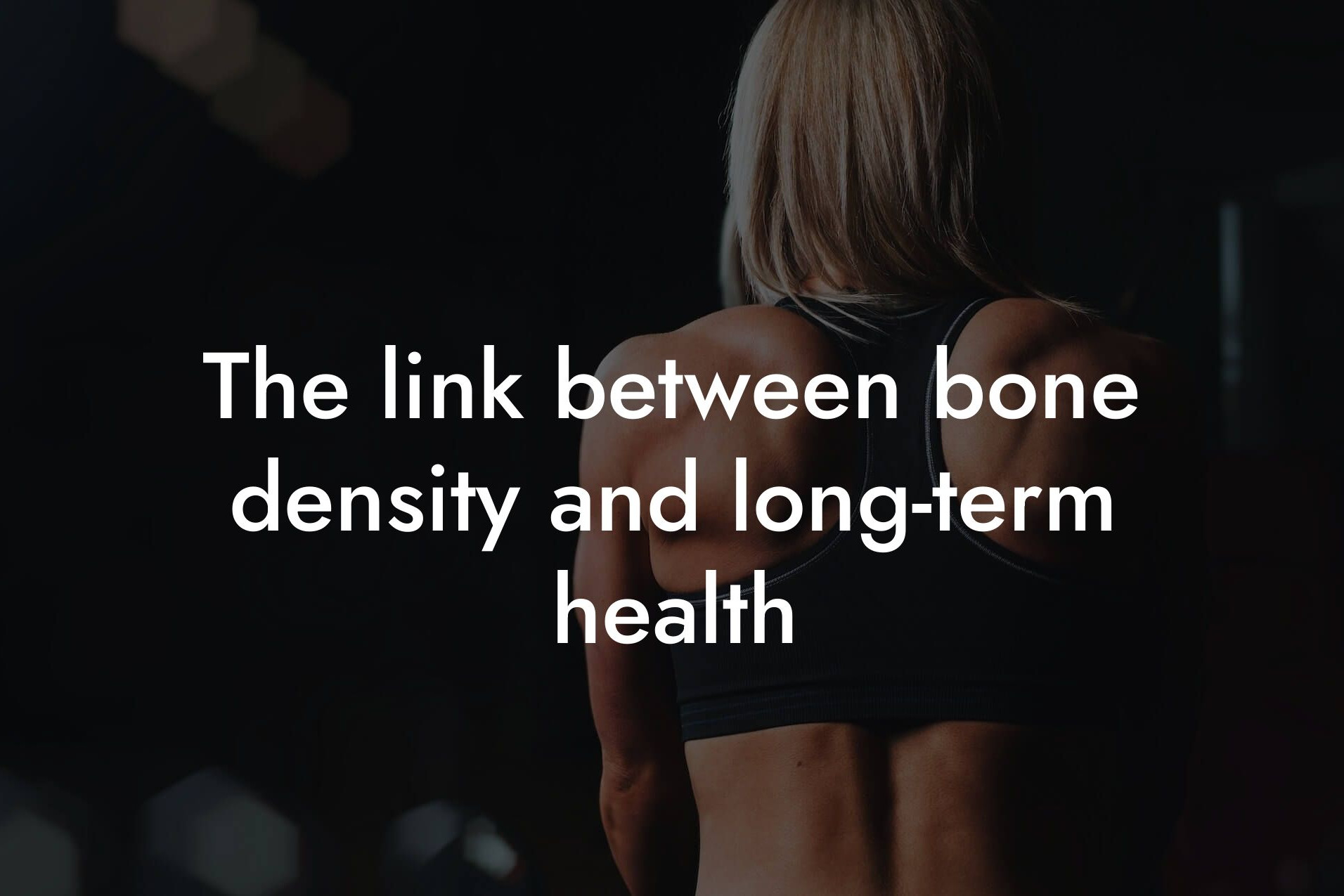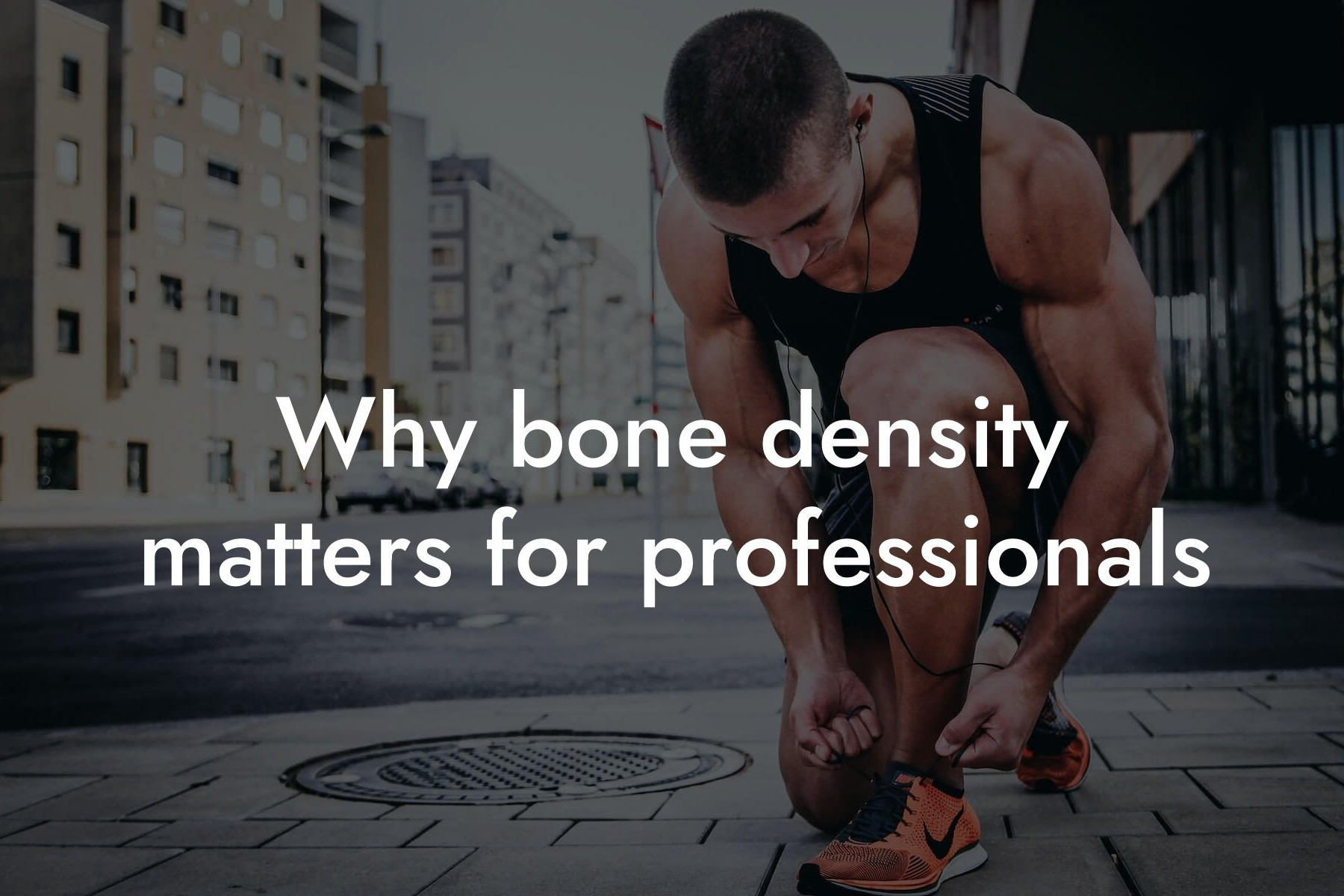A DEXA (Dual-Energy X-ray Absorptiometry) scan is a non-invasive medical test that measures bone density, which is essential for evaluating osteoporosis and fracture risk. It's a valuable tool for high-earning professionals like yourself who prioritize their physical appearance, body fat, physique, and overall health. At Tano Performance Group, we use DEXA machines to provide comprehensive body assessments, helping you make informed decisions to take your health and business to the next level.
Table of Contents
How Does a DEXA Scan Work?
A DEXA scan uses low-level X-rays to measure bone density in specific areas of the body, typically the spine, hip, and forearm. During the test, you'll lie on an examination table, and a scanner will pass over your body, emitting X-rays that penetrate the bone. The X-rays are absorbed differently by bone and soft tissue, allowing the scanner to calculate bone density. The entire process usually takes around 10-15 minutes, and you'll be exposed to very low levels of radiation – much lower than a typical chest X-ray.
What Are the Benefits of a DEXA Scan?
A DEXA scan offers several benefits, including:
- Accurate measurement of bone density, allowing for early detection of osteoporosis and fracture risk
- Identification of vertebral fractures, which can be a sign of osteoporosis
- Monitoring of bone density over time, helping you track the effectiveness of treatment or lifestyle changes
- Detection of other conditions, such as osteopenia (low bone mass) or bone cancer
- Guidance for exercise and nutrition programs tailored to your specific bone health needs
Who Should Get a DEXA Scan?
The National Osteoporosis Foundation recommends DEXA scans for:
- Women aged 65 and older
- Men aged 70 and older
- Postmenopausal women under 65 with risk factors, such as a family history of osteoporosis or a previous fracture
- Men under 70 with risk factors, such as a previous fracture or low testosterone levels
- Anyone with a history of fractures or osteoporosis
- Individuals with certain medical conditions, such as rheumatoid arthritis or lupus
- Those taking medications that can affect bone density, such as corticosteroids or anticonvulsants
How to Prepare for a DEXA Scan
To ensure accurate results, follow these preparation guidelines:
- Avoid calcium supplements or multivitamins containing calcium for 24 hours before the scan
- Wear loose, comfortable clothing without metal fasteners or zippers
- Remove any jewelry or metal objects that may interfere with the scan
- Inform your healthcare provider if you've had a barium study or taken a medication containing bismuth within the past week
Understanding DEXA Scan Results
Your DEXA scan results will be reported in terms of T-scores and Z-scores:
- T-scores compare your bone density to that of a healthy 30-year-old adult of the same sex and ethnicity. A T-score of -1 or higher is normal, while a score of -2.5 or lower indicates osteoporosis.
- Z-scores compare your bone density to that of others of the same age, sex, and ethnicity. A Z-score of 0 is average, while a score above or below 0 indicates higher or lower bone density, respectively.
What Do DEXA Scan Results Mean for Your Health?
Your DEXA scan results will provide valuable insights into your bone health, enabling you to take proactive steps to:
- Prevent osteoporosis and fractures
- Develop a personalized exercise and nutrition plan to improve bone density
- Monitor the effectiveness of treatment or lifestyle changes over time
- Make informed decisions about your overall health and wellness
A DEXA scan is a valuable tool for high-earning professionals like yourself who prioritize their physical appearance, body fat, physique, and overall health. By understanding what a DEXA scan is, how it works, and what the results mean, you can take control of your bone health and make informed decisions to improve your overall well-being. At Tano Performance Group, we're committed to providing you with the information and resources you need to take your health and business to the next level.
Frequently Asked Questions
What is a DEXA scan?
A DEXA (Dual-Energy X-ray Absorptiometry) scan is a non-invasive medical test that measures bone density. It's commonly used to diagnose osteoporosis, a condition characterized by brittle and porous bones. The scan uses low-level X-rays to produce images of the inside of your body, which helps healthcare professionals assess your bone health.
Why is bone density important?
Bone density is a critical aspect of overall health, especially as we age. Strong bones support our bodies and enable us to move freely. Low bone density can increase the risk of fractures, osteoporosis, and other bone-related disorders. Maintaining healthy bone density is essential for preventing these issues and ensuring a good quality of life.
Who needs a DEXA scan?
DEXA scans are recommended for individuals who are at risk of osteoporosis or have a higher likelihood of experiencing bone loss. This includes:
- Women over 65 and men over 70
- Individuals with a family history of osteoporosis
- Those who have had a fracture after a minor fall
- People with certain medical conditions, such as rheumatoid arthritis or lupus
- Individuals taking medications that can cause bone loss, such as corticosteroids
How does a DEXA scan work?
A DEXA scan is a quick and painless procedure that typically takes around 10-15 minutes. You'll lie on an examination table, and a scanner will pass over your body, emitting low-level X-rays. The scanner will measure the density of your bones, usually in the hip and spine, and compare the results to a standard reference range.
What do DEXA scan results mean?
DEXA scan results are reported in a T-score, which compares your bone density to that of a healthy 30-year-old adult. A T-score of:
- -1 or higher indicates normal bone density
- -1.1 to -2.4 indicates low bone mass (osteopenia)
- -2.5 or lower indicates osteoporosis
What is the difference between osteopenia and osteoporosis?
Osteopenia is a condition where bone density is lower than normal, but not low enough to be classified as osteoporosis. While osteopenia is a warning sign for potential bone loss, it's not as severe as osteoporosis. Osteoporosis, on the other hand, is a condition characterized by brittle and porous bones, making them more susceptible to fractures.
Can I prepare for a DEXA scan?
Yes, there are some preparations you can take before a DEXA scan:
- Avoid taking calcium supplements for 24 hours before the scan
- Wear loose, comfortable clothing without metal fasteners
- Remove any metal objects, such as jewelry or glasses, that may interfere with the scan
Are DEXA scans safe?
DEXA scans are extremely safe and use very low levels of radiation, equivalent to about 1/10th of a chest X-ray. The scan is painless and doesn't require any injections or invasive procedures.
How often should I get a DEXA scan?
The frequency of DEXA scans depends on your individual risk factors and medical history. Your healthcare provider may recommend a scan every 1-3 years to monitor bone density and adjust treatment plans as needed.
What can I do to improve my bone density?
There are several ways to improve bone density:
- Engage in regular exercise, such as weight-bearing activities like walking or running
- Consume a diet rich in calcium and vitamin D
- Get enough sleep and manage stress levels
- Avoid smoking and excessive alcohol consumption
Can exercise really improve bone density?
Yes, exercise can significantly improve bone density. Weight-bearing exercises, such as running, jumping, or weightlifting, stimulate bone growth and density. Resistance training, in particular, has been shown to increase bone density in older adults.
What role does nutrition play in bone health?
Nutrition plays a crucial role in maintaining healthy bones. A diet rich in calcium and vitamin D is essential for bone growth and density. Foods high in these nutrients include dairy products, leafy greens, and fatty fish.
Can medications affect bone density?
Yes, certain medications can affect bone density. Corticosteroids, for example, can cause bone loss over time. Other medications, such as bisphosphonates, can help treat osteoporosis by slowing down bone resorption.
What are the risks of osteoporosis?
Osteoporosis can increase the risk of:
- Fragility fractures, particularly in the hip, spine, or wrist
- Chronic pain and disability
- Loss of mobility and independence
- Decreased quality of life
Can osteoporosis be treated?
Yes, osteoporosis can be treated with a combination of lifestyle changes and medications. Treatment plans may include:
- Bisphosphonates to slow down bone resorption
- Hormone replacement therapy to improve bone density
- Lifestyle modifications, such as exercise and nutrition
- Calcium and vitamin D supplements
What is the cost of a DEXA scan?
The cost of a DEXA scan varies depending on your location, insurance coverage, and healthcare provider. On average, the cost ranges from $100 to $300.
Is a DEXA scan covered by insurance?
Most insurance plans, including Medicare, cover DEXA scans for individuals at risk of osteoporosis or with a history of fractures. However, it's essential to check with your insurance provider to confirm coverage.
What are the limitations of a DEXA scan?
While DEXA scans are highly effective in measuring bone density, they have some limitations:
- They may not detect bone loss in the early stages
- They can be affected by certain medical conditions, such as obesity or metal implants
- They may not provide information on bone quality or structure
What are the benefits of regular DEXA scans?
Regular DEXA scans can:
- Help identify bone loss early, allowing for prompt treatment
- Monitor the effectiveness of treatment plans
- Provide peace of mind and encourage proactive bone health management
How can I maintain healthy bones for life?
Maintaining healthy bones requires a long-term commitment to a healthy lifestyle. This includes:
- Engaging in regular exercise, such as weight-bearing activities
- Consuming a diet rich in calcium and vitamin D
- Getting enough sleep and managing stress levels
- Avoiding smoking and excessive alcohol consumption
- Staying hydrated and getting regular check-ups with your healthcare provider
Here are some related articles you might love...
- The link between bone density and long-term health
- Why bone density matters for professionals
- Bone density and aging: What professionals need to consider
- How to improve bone density naturally
- Understanding osteoporosis and its risks
- The role of calcium and vitamin D in bone health
- Best exercises for increasing bone density
- How stress affects bone density
- Nutrition tips for stronger bones
Zak Faulkner
Zak Faulkner is a leading authority in the realm of physical health and body composition analysis, with over 15 years of experience helping professionals optimise their fitness and well-being. As one the experts behind Tano Performance Group, Zak has dedicated his career to providing in-depth, science-backed insights that empower clients to elevate their physical performance and overall health.
With extensive knowledge of DEXA technology, Zak specializes in delivering comprehensive body assessments that offer precise data on body fat, muscle mass, bone density, and overall physique. His expertise enables individuals to make informed decisions and achieve their fitness goals with accuracy and confidence. Zak’s approach is rooted in a deep understanding of human physiology, combined with a passion for helping clients unlock their full potential through personalised strategies.
Over the years, Zak has earned a reputation for his commitment to excellence, precision, and client-focused service. His guidance is trusted by top professionals who demand the best when it comes to their health. Whether advising on fitness programs, nutritional strategies, or long-term wellness plans, Zak Faulkner’s insights are a valuable resource for anyone serious about taking their health and fitness to the next level.
At Tano Performance Group, Zak continues to lead our Content Team revolutionising how professionals approach their physical health, offering unparalleled expertise that drives real results.




